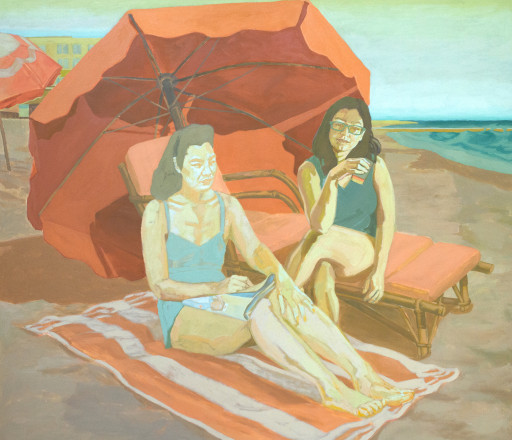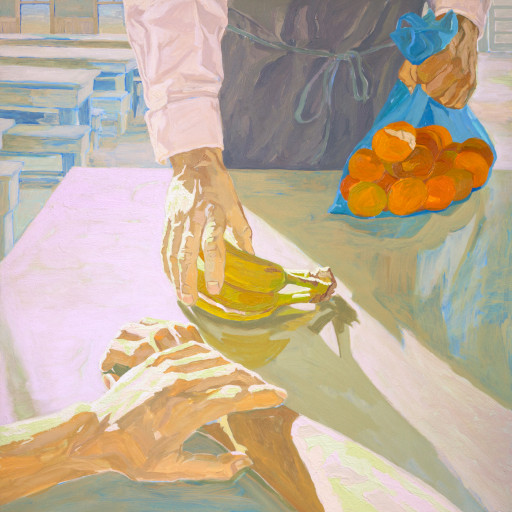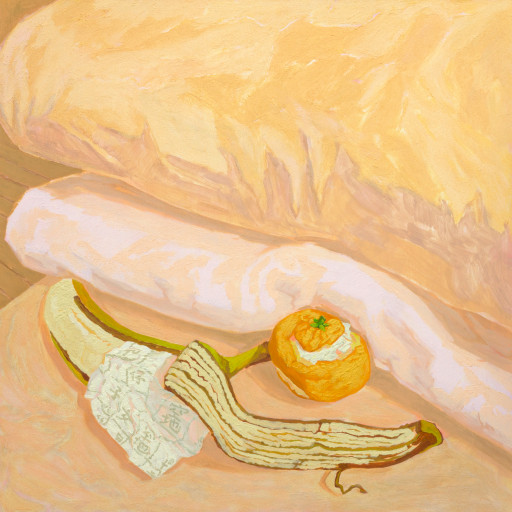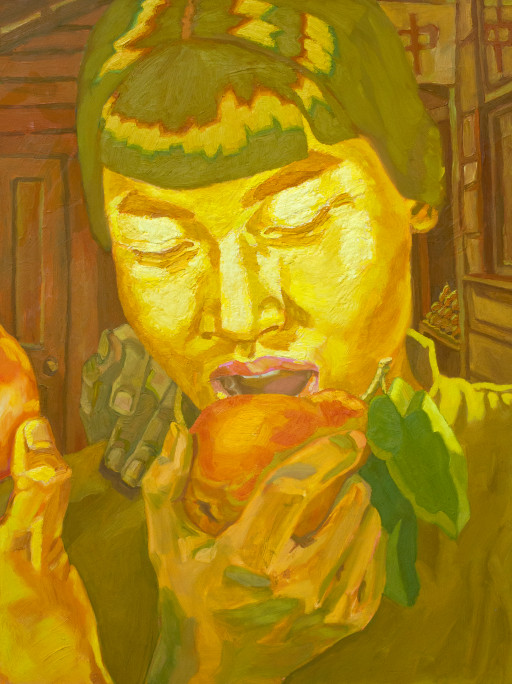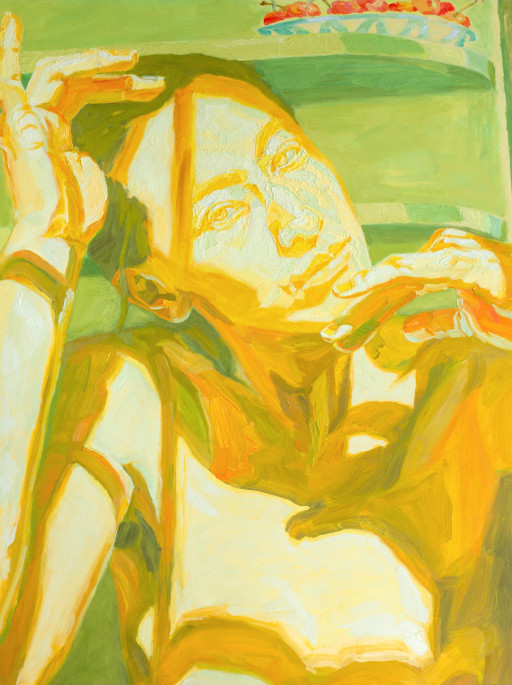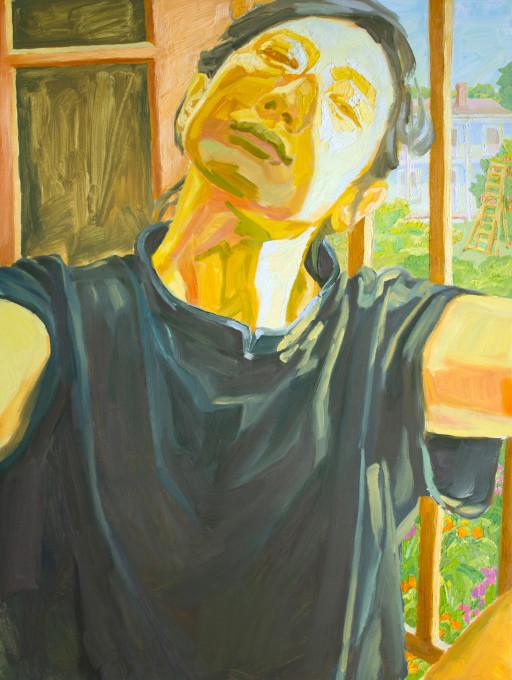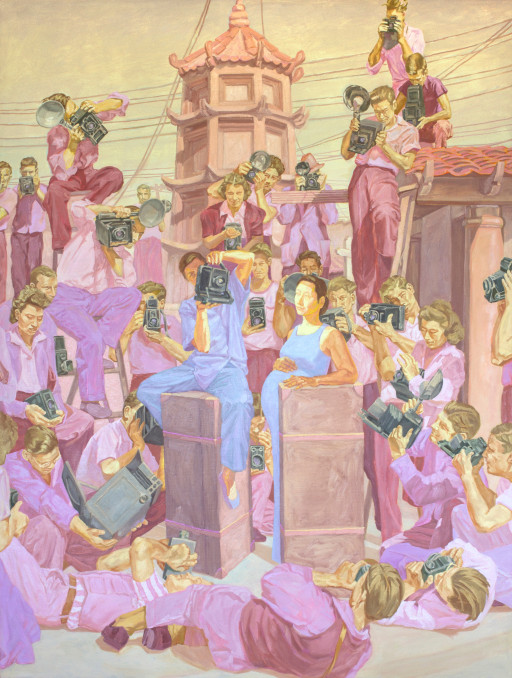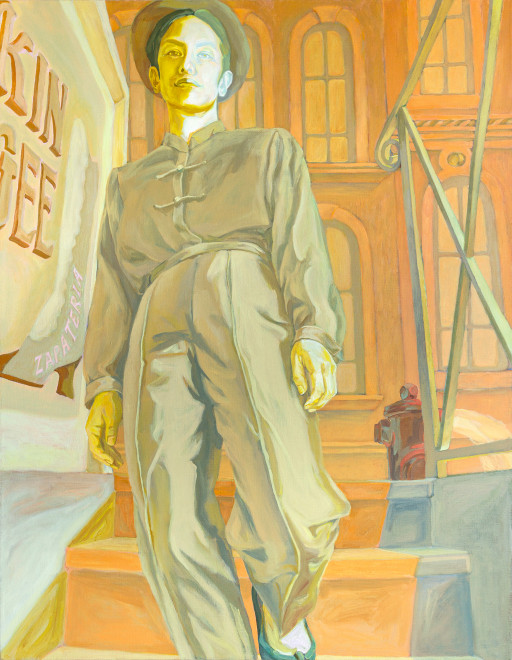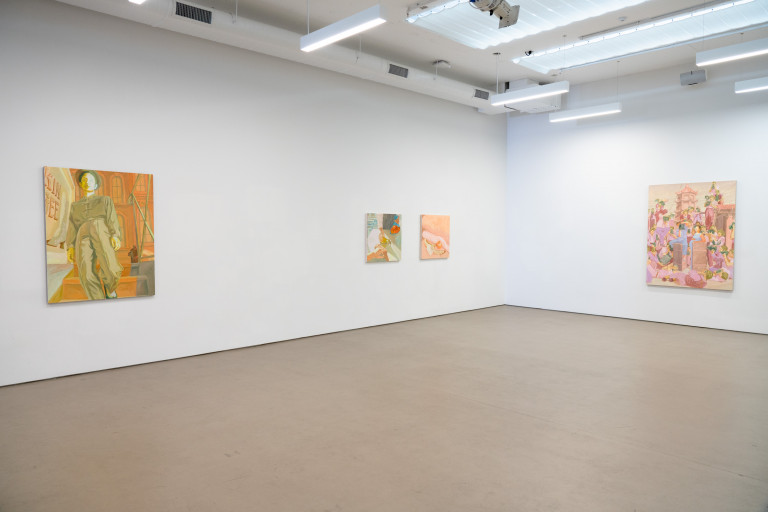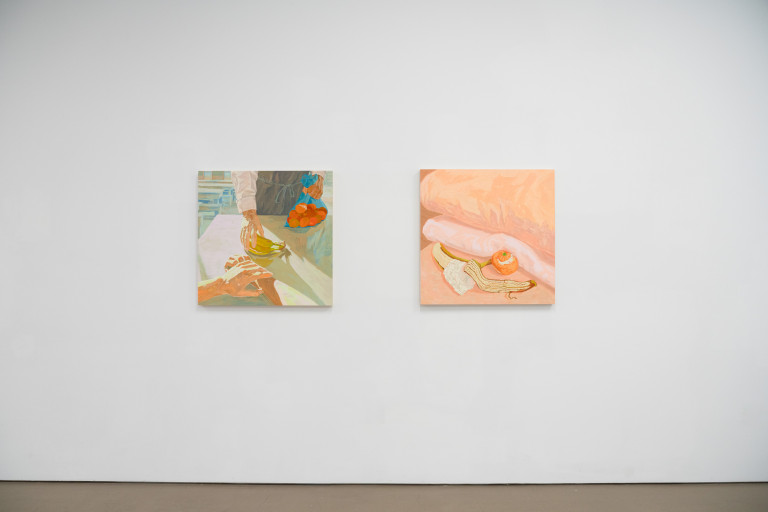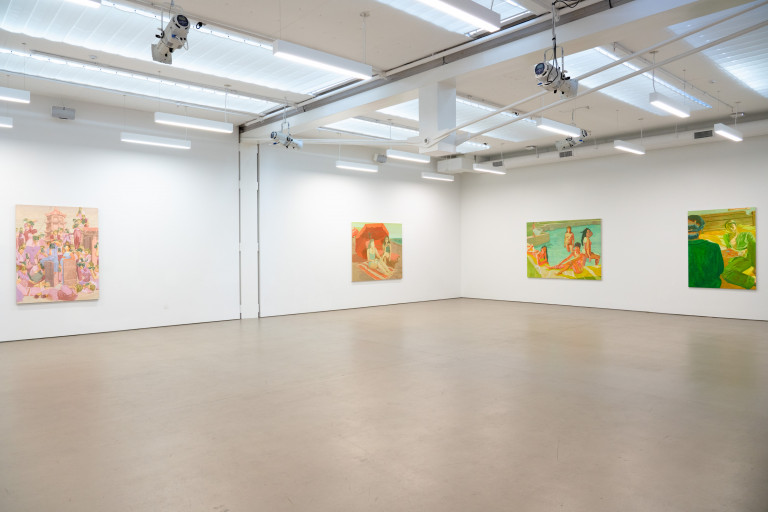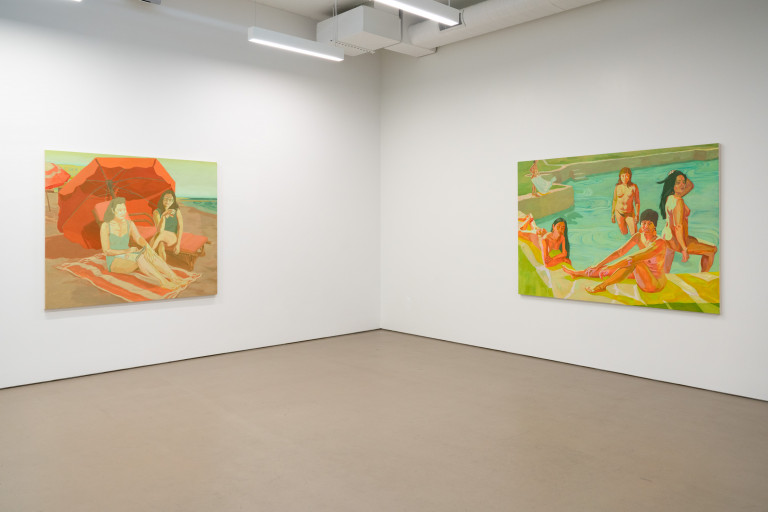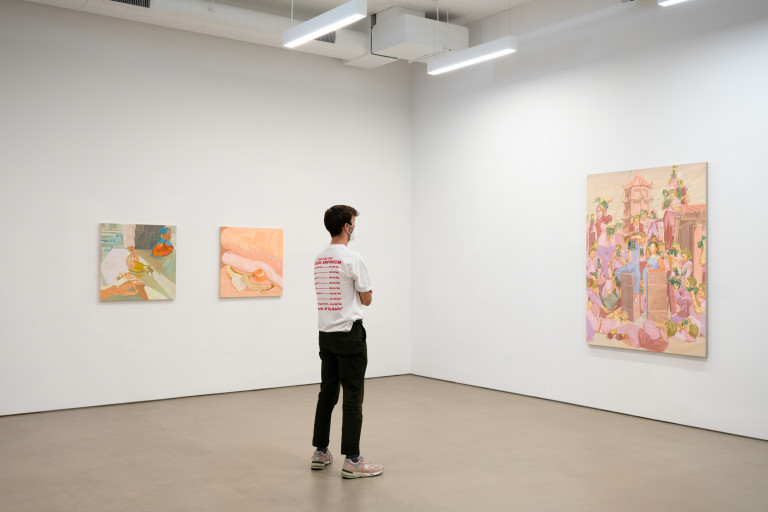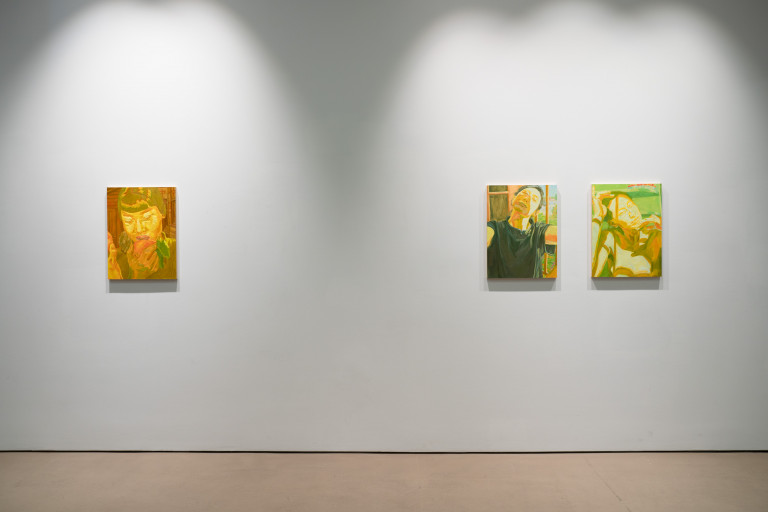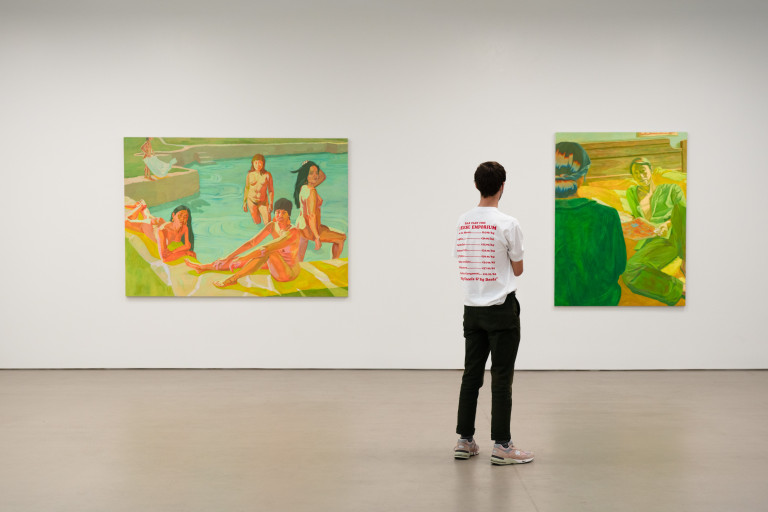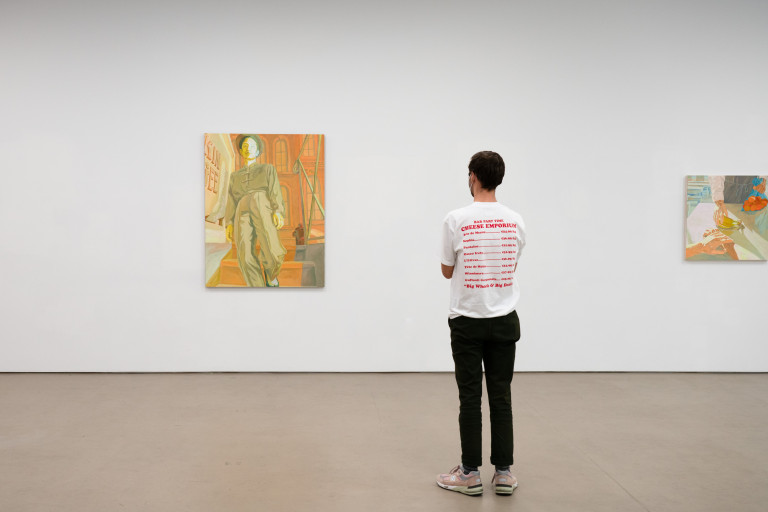Hands clutch a bag of oranges and pass a bundle of bananas across a table. They cup a round, pregnant belly, grasp a fleshy pear with two bright green leaves still attached, hold a smoking cigarette above a newspaper, and rest upon a lounging body, warmed by the midday sun.
The hands in Livien Yin’s paintings frame their subjects in these moments of rest and repose—on a bed, in front of an orchard, by the beach—illuminated by the gauzy hazes of a golden light. The paintings in Ka-la-fo-ne-a continue Yin’s ongoing Paper Suns series, named after the Chinese-born “paper sons and daughters” who entered the United States during the Chinese Exclusion Act (1882 - 1943) by adopting forged identities through paper documentation. The exhibition features fictionalized scenes of the few Chinese women who lived in California during the period of Chinese Exclusion following the 1875 Page Act—which had effectively blocked the immigration of women from “China, Japan or any Oriental country” on the basis of suspected prostitution.
In these works, Yin employs visual references from photographic archives of early Chinese Americans and Chinatown communities to imagine, and reimagine, the lives and futurities of these ”paper” identities. Yin’s process of recontextualization weaves between moments of history, documentary, and narrative to depict vignettes of leisure—from directly modifying historical photographs found through archival research to imagining new figures when working from an absence of archival visual representation.
In Coaching Notes II, an orange and banana, passed across the table by the hands in Coaching Notes I, are peeled open to reveal crumpled notes. At the Immigration Station on San Francisco’s Angel Island, these notes had helped Chinese detainees pass immigration interrogations and were smuggled in through oranges, bananas, pork buns and peanut shells.
In After Washerwoman’s Lagoon, four sunbathing women gaze at the viewer, each figure draped gently across the canvas as the edge of a lake snakes around them. A fifth figure can be seen in the distant background, fanning a sheet above the water. Just below the Presidio, where the Marina is now, this small lake had been used by Indigenous and Spanish women to wash clothes, lending to its name. The clamor of the Gold Rush in the 1850s fueled a lucrative demand for garment washing, leading to a proliferation of Chinese laundry businesses by the lagoon and across San Francisco, and then anti-immigration labor sentiment and anti-laundry legislation throughout the city. Yin has recreated this lagoon, depicting Bay Area artists and friends as the lounging sunbathers. In repurposing historical imagery, this site has become a vignette not of labor and racialized anxieties, but of collective care.
In creating these scenes, Yin employs self-portraiture along with depictions of her community, obscuring the sense of time between the present and the early years when Asian women were perceived as sexual threats in America, and collapsing spatio-temporal layers of California history and Yin’s own history. Her careful attention to detail and masterful use of light, shadow, and color awash her subjects’ subtle expressions, reclined positions, and gentle hands with an airy haze. There is a sense of weightlessness.
For Yin, these vivid moments of everyday repose commemorate the legacies of the first waves of Chinese immigration into the country. Yin’s large-scale canvases foreground the intimacies of the relationships and communities between Chinese women and other women of color in California. Throughout Ka-la-fo-ne-a, the subjects embody the strength passed down from the generations of women before our time.
— Janette Lu
Livien Yin (b. 1990, MA) is an artist currently living and working in Milwaukee, WI. Her art practice is primarily based in painting and sculpture. She received her MFA in Art Practice at Stanford University and her BA in Studio Art at Reed College. She has been awarded a 2021 Nō Studios Visual Art Grant, 2019-2020 Graduate Fellowship at Headlands Center for the Arts, the 2019 American Austrian Foundation/Seebacher Prize for Fine Arts, and recently completed an artist residency at the Marble House Project in Dorset, VT. Yin had her debut solo exhibition, Paper Suns, in 2021 at The New Gallery in Calgary, Alberta.
